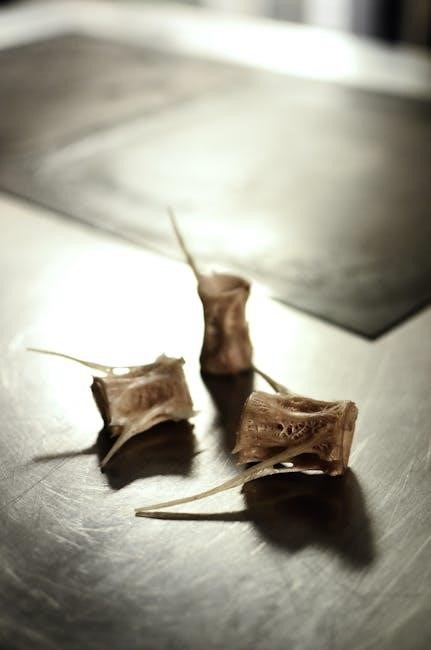Act Three is the climax of the play, filled with intense drama and tragic events. It explores themes of violence, fate, and conflicting loyalties, leading to irreversible consequences. Mercutio’s death, Romeo’s banishment, and Juliet’s emotional turmoil reshape the story’s trajectory, deepening the tragic conflict between the Montagues and Capulets.
Act Three marks the climax of Romeo and Juliet, where tension escalates and tragic events unfold. The act opens with a tense confrontation between Mercutio and Tybalt, leading to Mercutio’s death and Romeo’s impulsive revenge. This chain of events sets off a series of irreversible consequences, including Romeo’s banishment and Juliet’s desperate struggle to reunite with her husband. The act showcases Shakespeare’s mastery of dramatic structure, as the conflict between the Montagues and Capulets reaches its peak. Themes of fate, loyalty, and impulsive decisions dominate, setting the stage for the play’s heartbreaking conclusion. This act is pivotal, as it shifts the narrative from hope and love to tragedy and loss.
Scene 1: The Fatal Fight Between Mercutio and Tybalt
Scene 1 of Act Three is a pivotal moment in the play, as it sets off a chain of tragic events. The tension between Mercutio and Tybalt boils over into a duel, despite Romeo’s attempts to intervene. Mercutio, known for his fiery personality, challenges Tybalt, leading to a fatal confrontation. Romeo, bound by his secret marriage to Juliet and his desire to avoid conflict, refuses to fight Tybalt, enraging Mercutio. Tybalt takes advantage of Romeo’s hesitation and strikes Mercutio down. The scene highlights the destructive nature of the feud between the Montagues and Capulets, as well as the impulsive actions of the characters, which ultimately lead to devastating consequences.

2.1. Why Benvolio Thinks a Fight Will Occur
Benvolio suspects a fight will occur because of the hot weather, which he believes can provoke tempers and lead to conflict. He notes that Tybalt, known for his aggressive behavior, is looking for a reason to confront the Montagues. Benvolio also observes the tension between the Capulets and Montagues, suggesting that any small provocation could escalate into violence. His concerns are heightened by the fact that Tybalt is already angered by Romeo’s presence at the Capulet ball. Benvolio’s intuition proves correct as Tybalt’s animosity toward Romeo and Mercutio’s fiery temperament create a volatile situation, leading to the tragic fight.
2.2. Mercutio’s Death and Its Consequences
Mercutio’s death occurs during the fight with Tybalt, despite Romeo’s attempts to intervene. Mercutio is fatally stabbed by Tybalt and dies shortly after, cursing both families with “A plague o’ both your houses.” His death enrages Romeo, who then kills Tybalt in a fit of rage. This act leads to Romeo’s banishment from Verona, a punishment that separates him from Juliet and escalates the tragic events. Mercutio’s death marks a turning point in the play, shifting the tone from hope to despair. It also highlights the senseless violence fueled by the feud between the Montagues and Capulets, ultimately contributing to the play’s tragic outcome.
2.3. Romeo’s Refusal to Fight Tybalt

Romeo’s refusal to fight Tybalt stems from his secret marriage to Juliet, making Tybalt his relative by law. Romeo attempts to defuse the tension, but Tybalt mocks him, leading Mercutio to take up the fight instead. Romeo’s inaction angers Mercutio, who accuses him of cowardice. Despite this, Romeo tries to prevent the duel, urging Mercutio and Tybalt to stop. His refusal to engage Tybalt highlights his internal conflict between loyalty to his friend and commitment to his wife, showcasing his moral struggle. This decision ultimately leads to Mercutio’s death and Romeo’s subsequent actions, reshaping the play’s tragic trajectory.
The Prince’s Punishment and Romeo’s Banishment
The Prince, fed up with the ongoing violence between the Montagues and Capulets, delivers a stern punishment after Mercutio’s death. He banishes Romeo from Verona, hoping to restore peace and prevent further bloodshed. This decision devastates Romeo, who sees it as a death sentence, separating him from Juliet. The Prince’s actions highlight his frustration with the feuding families and his desire to maintain order. Romeo’s banishment accelerates the tragic events, forcing the lovers to devise desperate plans to be together, ultimately leading to their demise and the play’s heartbreaking conclusion.
3.1. The Prince’s Reaction to the Fight
The Prince is deeply angered by the ongoing violence between the Montagues and Capulets, particularly after Mercutio’s death. He sees this as a failure of the families to adhere to his previous warnings and a disregard for the law. The Prince’s frustration boils over, and he delivers a stern condemnation of both families, blaming them for the tragedy. His reaction reflects his exhaustion with the repeated clashes and his desire to restore order in Verona. The Prince’s anger leads to significant consequences, as he imposes harsher penalties to try to end the feud once and for all.
3.2. The Impact of Romeo’s Banishment
Romeo’s banishment from Verona has profound emotional and practical consequences. Separated from Juliet, he is left feeling isolated and desperate, while Juliet is plunged into despair. The banishment disrupts their secret marriage and the plans to escape Verona, leaving their future uncertain. Romeo’s absence weakens his connection to his family and allies, making him more vulnerable. The Prince’s decision accelerates the tragic momentum of the play, as Romeo’s inability to return fuels the chain of events leading to the devastating conclusion. The banishment underscores the harsh realities of the feud and the societal constraints that trap the lovers in their fate.
The Secret Marriage and Plans to Flee Verona
Romeo and Juliet’s secret marriage, officiated by Friar Laurence, symbolizes their desperate attempt to escape the feud. The Friar devises a plan for them to flee Verona, hoping their union will eventually reconcile their families. Juliet agrees to fake her death to avoid marrying Paris, while Romeo prepares to take her to Mantua. This risky strategy reflects their trust in the Friar and their willingness to defy societal norms. However, the complexity of the plan and the haste in its execution set the stage for potential failures and tragic misunderstandings. Their decision to flee highlights their love’s enduring strength but also the daunting obstacles they face.
4.1. Friar Laurence’s Plan for the Lovers
Friar Laurence devises a daring plan to reunite Romeo and Juliet. He gives Juliet a potion to make her appear dead, hoping her family will believe she has passed away. This ruse aims to prevent her marriage to Paris and allow her to escape to Romeo. The Friar intends for Romeo to retrieve Juliet from the tomb and flee Verona together. While the plan is risky, Friar Laurence believes it will resolve the conflict and reunite the lovers. His strategy relies on precise timing and trust in the potion’s effectiveness, showcasing his willingness to intervene in the lovers’ fate. However, the complexity of the plan leaves room for tragic misunderstandings.
4.2. Romeo and Juliet’s One Night Together
Romeo and Juliet share a brief, passionate night together before Romeo’s banishment. Their union is filled with emotional depth, as they express their love and commitment to one another. Juliet, despite her youth, shows remarkable maturity in her devotion, while Romeo’s actions reflect his desperate longing to be with her. Their time together highlights the intensity of their bond and their determination to defy the circumstances separating them. This intimate moment serves as a poignant contrast to the impending tragedy, underscoring the fleeting nature of their happiness. Their night together becomes a central emotional anchor in the play, symbolizing the transcendent power of their love amidst conflict and fate.

Juliet’s Reaction to the Tragic News
Juliet is devastated upon learning of Romeo’s banishment and Tybalt’s death. Her initial grief transforms into a passionate defense of Romeo, as she insists he acted out of loyalty and love. Despite the Nurse’s disapproval, Juliet remains steadfast in her devotion, showcasing her emotional resilience. Her reaction reveals a deep internal conflict: she mourns the loss of her husband while grappling with the reality of their families’ hatred. Juliet’s response underscores her maturity and unwavering commitment to Romeo, even in the face of tragedy. This moment highlights her ability to balance love and logic, setting the stage for her later desperation and resolve.

5.1. Juliet’s Defense of Romeo to the Nurse
Juliet fiercely defends Romeo when the Nurse criticizes him for killing Tybalt. She argues that Romeo acted in self-defense and out of love for her, emphasizing that Tybalt was the aggressor. Juliet’s defense reveals her deep loyalty and understanding of Romeo’s actions, even in the face of tragic consequences. She insists that Romeo’s banishment is unjust and that he remains her true husband. This moment highlights Juliet’s emotional strength and her ability to rationalize Romeo’s actions, showcasing her unwavering commitment to their love despite the turmoil surrounding them. Her defense also underscores her growing independence and determination to stand by Romeo, no matter the cost.
5.2. Juliet’s Emotional Conflict
Juliet faces intense emotional turmoil upon learning of Romeo’s banishment and Tybalt’s death. She struggles to reconcile her love for Romeo with the reality of his actions, feeling both loyalty to her husband and grief over the loss of her cousin. Juliet’s conflict deepens as she grapples with the societal expectations placed upon her, particularly her parents’ insistence on marrying Paris. Her isolation grows as she feels betrayed by the Nurse’s criticism of Romeo, forcing her to rely solely on Friar Laurence for guidance. This internal battle highlights Juliet’s resilience and determination to stand by Romeo, even as she confronts the daunting challenges of her situation. Her emotional state reflects the tragic consequences of the feud and her own impossible choices.

